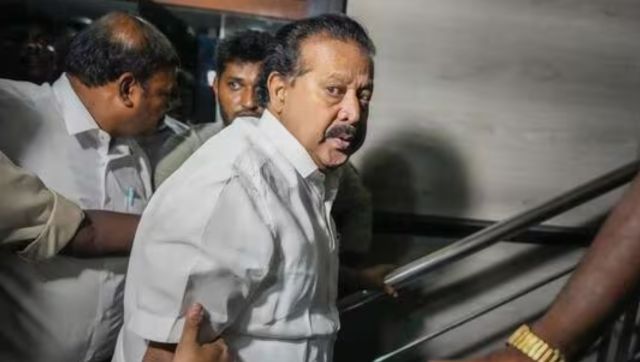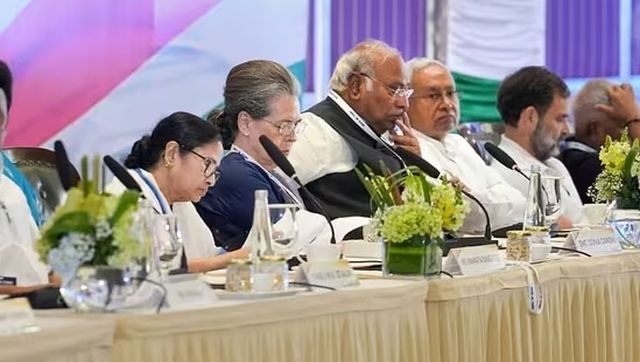In a first of its kind order, the Election Commission (EC) of India recently issued show-cause notices to two major political parties in Tamil Nadu for violating the model code of conduct with respect to their manifestoes — All India Anna Dravida Munnetra Kazhagam (AIADMK) and the Dravida Munnetra Kazhagam (DMK).
According to the EC notice, the two parties and their election manifestos did not “substantially” fulfil its guidelines. The notices had said that prima facie the manifestos of the two parties “have not substantially fulfilled the guidelines of the Commission”.
The EC told the two parties “to explain your stand for non-compliance of the guidelines of the Commission and also reflect the rationale for the promises made in your manifesto and broadly indicate the ways and means to meet the financial requirement for the same.” While AIADMK supremo J Jayalalithaa had replied to the notice, the DMK has sought more time to reply to the notice.
While the EC might have woken up only now to the fact that parties in Tamil Nadu ride high on the entire “freebie” plank, the debate around the culture has garnered much voice in the run-up to the Assembly election in the state.
Let’s start at the very beginning.
If political parties need a winning manifesto, they should simply take a leaf out of the book of Tamil Nadu parties. Be it cheap rice, free colour TVs, cash doles or farm loan waiver, many a popular scheme has its roots in the state. It first came in the play when late K Kamaraj, chief minister of the state between 1954 to 1963, introduced the concepts of free education and free food for school students to supplement their education.
The politics of cheap rice was then played out in 1967 again when DMK founder CN Annadurai promised “three measures” (around 4.5 kg) of rice for Re 1 through the state public distribution system (PDS). After winning the elections, Annadurai became the chief minister and implemented the scheme for sometime in a few pockets but later scrapped it owing to the financial burden.
In the run up to the 2006 Assembly elections, the freebie culture touched a new high when the DMK announced free colour televisions; rice at Rs two per kg (once in power this was reduced to Re one a kg); two acres of land for the landless; free gas stoves and Rs 300 cash doles for the unemployed; maternity assistance of Rs 1,000 for all poor women for six months; as well as free power to weavers.
In its 2009-10 budget, Tamil Nadu allocated Rs 2.79 billion for supply of free power to farmers and Rs 12.51 billion towards free electricity connections to huts and places of worship and subsidised connections for homes and local bodies; Rs five billion for free distribution of 2.5 million colour TV sets and Rs 1.4 billion for free gas stoves and connections.
The distant past has seen offers like free bicycles and free spectacles. And more recently freebies including free laptops, mixers and wet-grinders joined the list.
AIADMK government too has doled out many freebies to the poor — among them free cycles, chappals, saris and dhotis. Seeing how such schemes fetched votes in Tamil Nadu, national and regional parties in states like Andhra Pradesh, Karnataka, Punjab and Chhattisgarh copied the cheap rice and free power promises.
Analysts and political critics have often slammed the ritual of giving away free stuff just before the elections terming it as bribing the ingenuous voters of the state. A few weeks back, former Chief Election Commissioner N Gopalaswami had told The Hindu during a webchat, that Tamil Nadu was probably the only state where the politicians made the voters corrupt. And while doling out freebies, the DMK and the AIADMK have indulged in a game of one-upmanship in the past decade.
The economic viability of such “welfare schemes” have been questioned. In fact, the “dark secret”, as Swaminathan Aiyar in his blog in The Times of India calls it, is that these freebies “are financed mainly by massive revenues from liquor sales.” However, with almost all the major parties promising prohibition on liquor in the state, it will be interesting to see how the future governments manage the finances without liquor sales to fund the massive list of freebies.
DMK spent over Rs 3,340 crore on 1,52,80,000 14-inch TV sets with each costing an average of Rs 2,456. They were distributed in five phases between 2006-10. An expenditure of Rs 1,200 crore was incurred in 2012-13 after procuring 7,84,000 laptops for students and the then ruling AIADMK was expected to spend Rs 10,200 crore in the next five years.
The state’s debt has jumped 80 percent in the last five years. And, it has gone from a revenue surplus to a revenue deficit state leaving little money to bankroll these schemes.
On mixies, grinders and table fans, Rs 2,000 crore was spent by the ruling government. 3.5 million beneficiaries were recipients of this scheme. In 2014-15, Rs 1,250 crore was spent on the same once again.
The non-AIADMK spectrum’s approach of not supporting giving pre-poll freebies has reignited the populism debate in the state. London School of Economics-educated Anbumani Ramadoss, who is the youth wing president of Pattali Makkal Katchi (PMK) and is also the CM candidate for the party, said that his party has promised development, jobs and CBSE-level education in the state. “We won’t give away free things. We will promise you though that there will be an overall development of living standard if PMK is voted. Please give us a chance,” Ramadoss told Firstpost while campaigning in Dharmapuri district of Tamil Nadu.
A state like Tamil Nadu which grappling with serious power deficit issues and where regular power cut is a reality, how will mixies, grinders, TVs, fans and laptops help the masses? Rajkumari, a 45-year-old woman who sells fish for survival in Chennai, told Firstpost that the free stuff that Amma gave is hardly of any use to the people.
According to Tamil Nadu’s Twelve Year Plan published in 2012 , Tamil Nadu was facing a severe power shortage of close to 1,500 MW. The 2013-14 figures of the state’s consumption of power and unrestricted requirement also show signs of a widening gap. According to the report, the actual consumption is 87,987 million units as opposed to a requirement of 93,509 million units. An annual report (2013-14) by the Subregional Power Committee shows that Tamil Nadu experiences its highest deficit at the onset of summer. The state fell short of 1,431 MU, that is, 17.45 percent during the month of April, 2013 and 752 MU, that is, 10.65 percent in November, 2013 — the same year the Jayalalithaa government started implementing its poll promises.
What is astonishing and striking, however, is the disconnect between the pre-poll promises made by parties and what the people on the ground really want. Travelling through Dharmapuri and Villupuram districts of the state, Firstpost interacted with villagers, whose daily grouse is more about electricity issues, bad roads, terrible law and order situation, among others. None of the villagers, who spoke with us, complained about not owning a laptop.
Marakkanam is a small coastal hamlet in the Villupuram district of the state. The panchayat town is well-connected with capital city Chennai and nearby Puducherry by road. The tiny hamlet, with not more than 20,000 people, has been a DMK bastion. Firstpost asked the villagers whether they really needed the freebies that the political parties benevolently gave away.
This is what they had to say:
Sarvanan, a 47-year-old daily-wage labourer, told Firstpost, “Who says no to free stuff? We are poor people. I earn Rs 300 doing what I do. If someone comes and offers me a free meal, I will not say no to it. But once I have eaten that meal, it is over. But other problems are not. I have two daughters and a son. Me and my wife work round the clock to make sure they are educated and they don’t end up doing menial jobs like this (refers to daily labour). Politicians should come out of their AC offices and see the condition we live in.”
The combined opinion of the villagers across the state can put an end to the debate surrounding the freebie culture but Tamil Nadu’s politics is not that easy to decode. The same villagers will go and either vote for Amma or the Kalaignar. “Who else is there? What choice do we have?” villagers of Pennagaram in Dharmapuri district, made their displeasure known in unison.
The peculiar nature of Tamil Nadu politics makes a few things harder to comprehend. Conventional wisdom dictates that unbridled populism, monopoly of a few parties, autocratic governance and unchecked corruption are mutually incompatible with development and economic growth. But in this southern state, the two happily coexist.
A populist economy is not all that bad.
There are many who eat regularly at the government-subsidised canteens and carry home a free pressure cooker. However, when political parties come out of their dens a month or two before the state goes to polls and announce a slew of “welfare schemes”, it reeks more of a guilty politician trying to clear his conscience of any moral obligation than a leader who has the welfare of the state in his/her mind.


)




)
)
)
)
)
)
)
)